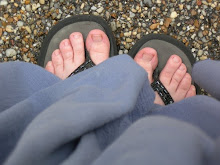 Jesus Christ is not a weapon.
Jesus Christ is not a weapon.~ Mrs. Reyes, Lost
Justice can be tricky.
Last night, while working through the first section of The Open Table we came upon the question: What would a world without justice look like? The question was asked as part of the overarching section theme: What do you think of when you think of God?
Justice is a part of God’s character, and he calls us to display his character through our lives.
But what is justice?
What does it look like?
What implications does it place on our lives?
We wrestled with these questions, and did not come to a unanimous conclusion.
Are we called to non-violently lay down our lives, or take up arms to protect the innocent, or both?
How do we balance speaking the truth and displaying love?
Are we called to persuade or to serve?
Whose job is it to control behavior and choices?
The authors of Justice in the Burbs emphasize that pursuing justice requires personal involvement. It can not simply be left to our societal organizations, whether it be congregations, schools, non-profits or the government.
(p.92-93) Missionary writer Lesslie Newbigin talked about a congregation being a “hermeneutic of the gospel,” a fancy way of saying that how we act as followers of Jesus interprets for the larger culture the “good news” about Jesus. When we act individualistically, when we don’t seem to be moving in concert with other followers of Jesus, that becomes a statement to those around us. It’s hard to convince the world of the love of God when we have a hard time loving each other. It’s hard to convince the world that Jesus cares when we don’t.
Nowhere is this more evident than on issues of justice. The church in America seems far more enamored by the governmental process than by the sacrificial act of giving to each other and to a world in need. Judging by our actions, it seems we would rather show up every four years and vote than show up every day to be the agents of God’s work in the world. Our actions send a clear message to those in need: “we don’t really care about you.”
Recently the work of the church, particularly the American evangelical church, has come to be perceived as being more about power and control than about bringing the love of Christ to the world. We have become like a distant parent who says he or she loves the child but shows up only when it’s time to discipline him. This has significant impact on the church and the culture’s understanding of the gospel. The wonderful story of redemption available by converting to the way of Jesus becomes an empty slogan on the march to political dominance.
It can be overwhelming and perplexing to figure out what true justice looks like on a larger societal scale. However, in our day-to-day life justice can look like receiving people in our homes, sharing meals, listening, hearing, lending our voice, sharing our knowledge, learning from one another, making time and creating new priorities. Maybe justice can mean slowing down, allowing the spirit to cultivate his fruit in our lives, and opening our lives to those we encounter. Maybe justice can be about me acting from the kingdom planted within me in a way that foreshadows God’s anticipated kingdom, and invites people into the beauty of such a world.
Justice in the Burbs: Introduction
Justice in the Burbs: Breathing Room
Justice in the Burbs: Working Together

No comments:
Post a Comment